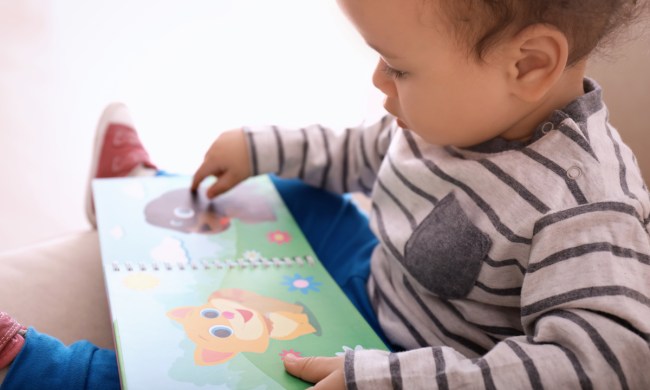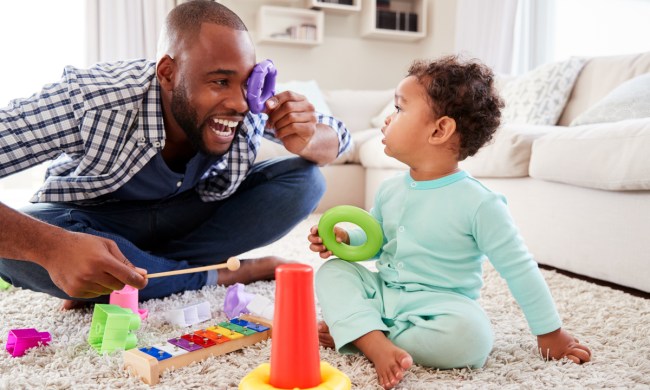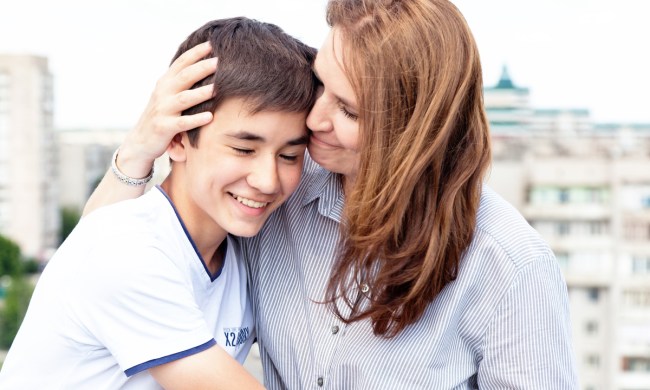It’s happening. You are in a crowded place, probably the grocery store. Your toddler has asked for something that you are not buying them. They give that look and you know what’s about to happen. A full-on, high-pitched temper tantrum will start any second. Before you start looking around to see who is watching, take a deep breath. There’s nothing incredibly rare about someone watching as a toddler throws a tantrum in public. There is no getting around experiencing toddler tantrums. But if you know what to do when that first lip quiver starts, you can handle it with grace and end it with you and your toddler feeling better. Let’s see how you can both get through a toddler tantrum.
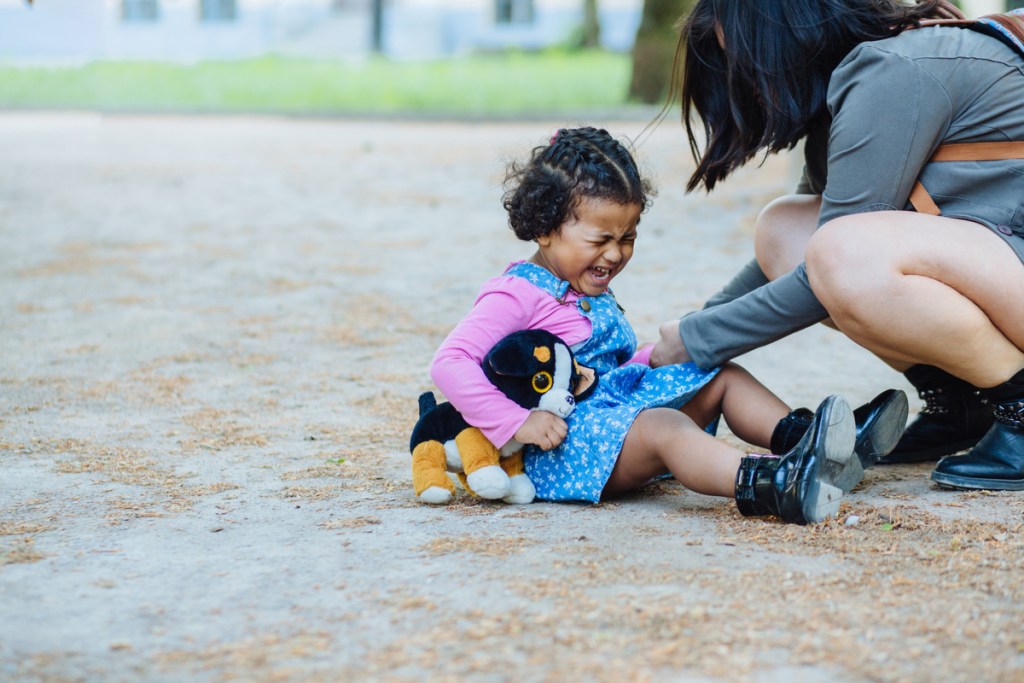
Know that tantrums are normal
Keep in mind
- Your child isn’t bad for throwing a tantrum
- They don’t know how to else to release their emotions
Temper tantrums are a part of toddler life. Even the most well-behaved children have a meltdown from time to time. You threw tantrums when you were a toddler, and look at how awesome you are.
Don’t turn a tantrum into something bigger. It’s your toddler’s way of expressing themselves. It’s not personal to you. They don’t know another way to get their point across so they pick having a meltdown.
Patience is your best friend
Whether you need to have a few deep breaths before you squat down to deal with the tantrum or chug the rest of your coffee, you are going to need to fill up on patience. You can’t overreact or you’ll make it worse.
You are going to panic, start to sweat, and wonder why you left the house in the first place. As long as you remain calm on the outside for your toddler to see that all is well, they will think all is well.
Ignore everyone around you
Remember
- People don’t usually pay attention to what’s around them
- They will forget you in minutes
This might be hard to do. Especially since your toddler wants an audience and attention. But if you are worried about everyone who may or may not even be paying attention to you, you aren’t focusing on your child.
And if anyone decides to stop and stare, ignore it. They’ll move along in a second. Some people might spare you a glance. A fellow parent might give you a sympathetic nod. Don’t pay attention to any of it. This is a developmental moment between you and your child and is no one else’s business.

Don’t give in
Ignore the meltdown
If your child is throwing the tantrum because they asked for an item at the store and you said no, stick to it. Don’t change your mind. That will only teach your toddler that tantrums work and cause them to repeat the process. That won’t help anyone.
Your toddler will understand over time that their fits won’t work in getting what they want. They will happen less often. If there isn’t a chance your toddler can hurt themselves, let the fit run its course and keep doing what you are doing. If they are sitting in the cart having their tantrum, keep pushing them along from aisle to aisle and do your shopping.
When to talk
Use short sentences and wait until the fit is over
Trying to talk to your toddler while the meltdown is happening, isn’t going to happen. You can tell them things like “I’m here for you,” “I can tell you’re upset,” or “I’ll talk to you when you calm down.”
A quick sentence to let them know you see they are having a tantrum and you’ll be there for them when they are done is fine. When the tantrum is over, then speak to them about what happened.
Try a sleight of hand
But know
- This is only a temporary fix
- They will probably still have a tantrum later that day
Sometimes a distraction is enough to get your toddler to forget they were going to throw a tantrum. Point out something bright and colorful they should look at. Ask them to hold something you are going to buy. Tell them their favorite joke or ask if they want to sing that song they love.
We know screen time isn’t the best answer, but in a pinch, it can be a lifesaver. Giving them your phone could always help calm them down.
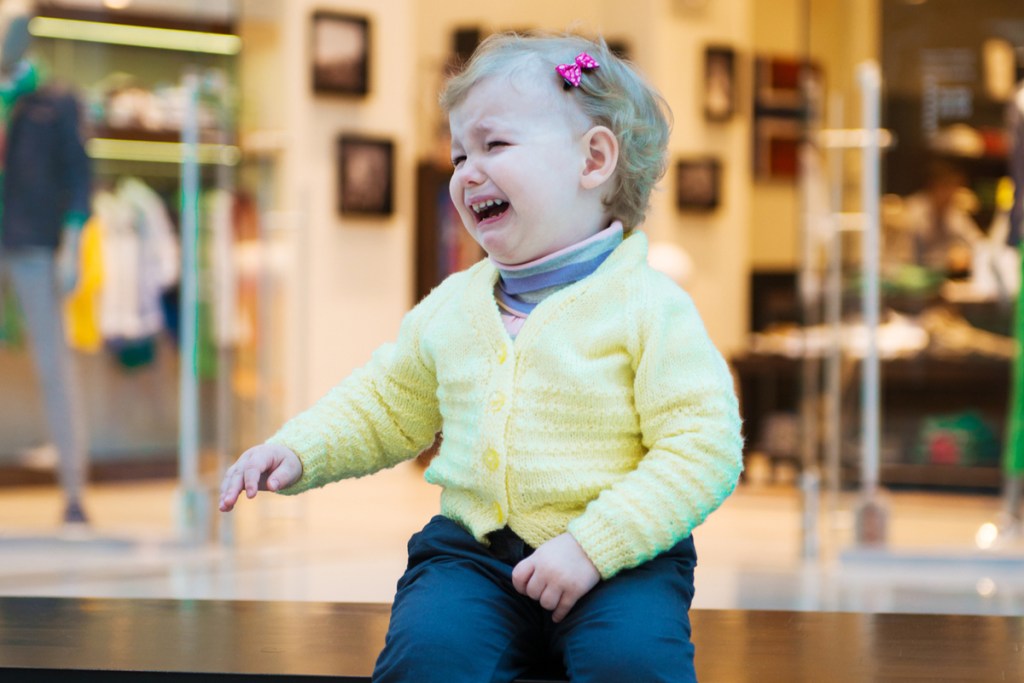
Prevention is the best policy
Pro tips
- Bring snacks/drinks
- Bring their favorite toy/blanket
- Make sure they aren’t tired/it’s not nap time
- Don’t plan on running errands all day
- Talk to them about what you are going to do
Leaving the house with a toddler is like packing for a weekend vacation, but it’s better to be prepared with a few snack options. Planning ahead when you are taking your little one out can limit how many tantrums they might have.
Toddlers don’t care where you are or what you are doing. If they feel like having a tantrum, they are going to have one. Toddler tantrums can’t be avoided, but they can be handled with calmness and patience. Your little one doesn’t know how to deal with their big emotions so they will flop, throw, and scream. But tantrums only last a few minutes (though it feels like years) and do not mean you are a bad parent or they are a bad child.
Public tantrums are nowhere near as easy as the ones they throw in the living room. But with our tips, you can get through them just the same. Knowing how to deal with your toddler in mid-public meltdown mode will help prevent you from having to peel them off of the floor at Target. When it happens, at least you’ll be prepared.

